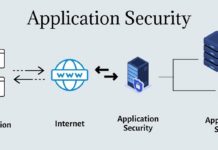To make it easier for organizations to balance price and performance in their cloud environments and reduce costs, Oracle today announced plans to make available new Oracle Cloud Infrastructure (OCI) Compute E5 instances with 4th generation AMD EPYC processors. Unlike other cloud providers’ rigid instance options that bind organizations to paying more for unused computing resources, flexible instances from OCI allow customers to allocate cores and memory as needed.
Oracle offers standard, high-performance computing (HPC), and Dense-IO instances with choices for the number of cores, amount of memory, local and remote storage, networking, and other resources to serve a wide variety of workloads faster and more efficiently. These instances offer customers flexible and simple options to run a wide range of workloads in the cloud including applications from Oracle, Microsoft, SAP, and other third-party ISVs, as well as VMware and Kubernetes environments.
OCI Compute E5 instances will offer more CPU cores, better performance per core, better memory bandwidth, and higher storage capacity than previous iterations with customizable options including:
- OCI Compute E5 Standard instances are the preferred platform for web and application servers, back-end servers for enterprise applications, application development environments, and many other use cases. Compared to prior generation E4 instances, the new instances deliver great efficiency by offering 33 percent better performance per core and 50 percent better memory bandwidth, as well as 50 percent more cores on bare metal instances according to internal testing.
- OCI Compute E5 HPC instances bring powerful, cost-effective computing capabilities to complex mathematical and scientific problems across industries. By using cluster networking to combine the processing power of multiple HPC instances, organizations can tackle complex tasks that usually require a supercomputer—including training AI models, predicting the weather, and analyzing genetic sequences—in the cloud. The new instances offer 40 percent better price-performance than prior generation HPC instances according to internal testing.
- OCI Compute E5 Dense-IO instances are designed for large databases, big data workloads, and applications that require high-performance local storage. The new instances help organizations to better address workloads such as databases and file systems by offering 50 percent higher storage capacity and 63 percent higher storage performance than prior E4 Dense-IO instances according to internal testing.
OCI also enables customers to customize their deployments to suit their needs with specific capabilities such as burstable and preemptible instances. This helps customers control their compute resources and costs by scaling up rapidly or allowing their resources to be reclaimed for use elsewhere when demands fluctuate. For organizations running extra-sensitive workloads, shielded instances offer hardened firmware security on both bare metal and VMs to defend against malicious boot-level software. Lastly, confidential computing instances can also help prevent unauthorized access, while still delivering high performance, by encrypting and isolating data in use.
In addition to typical uses for cloud-based compute services, OCI Compute E5 instances can be configured with clustered file systems to tackle complex cases. These include cases with large databases or requirements to access and change data rapidly such as training AI models, conducting financial analysis, rendering video, or simulating car crashes.
“No two organizations use their compute resources in the same way. Some just need fast, reliable bare metal instances to ensure their end users get good performance, while others are pushing boundaries with complicated simulations that require massive amounts of computing resources. Flexible and scalable OCI compute instances with AMD processors are already collectively saving our customers $40M per year as they can granularly configure instances to match the demands of their workload instead of relying on rigid, preset options,” said Donald Lu, senior vice president, software development, Oracle Cloud Infrastructure. “With the next-generation of AMD processors powering our OCI Compute E5 instances, we’re offering our customers the ability to run any workload faster and more efficiently while maintaining the leading price-performance they expect from Oracle.”
“AMD EPYC processors have made another leap forward in the performance, scalability and energy efficiency needed to run the most demanding business critical cloud workloads our customers rely on,” said Ram Peddibhotla, corporate vice president, Cloud Business, AMD. “With our new 4th Gen AMD EPYC processors, we’re helping cloud providers, like Oracle Cloud Infrastructure, offer high performance compute resources that enable customers to drive faster business results along with the security and flexibility they expect from EPYC processors.”
“OCI Compute, powered by AMD processors, provides both flexibility and best-in-class price-performance for workloads,” said Kamran Zargahi, senior director, Technology Strategy and Execution, Uber. “The Dense-IO and flexible instances are ideal for Uber applications for mobility & delivery, supporting a mix of our stateful and stateless workloads, including microservices, databases, and streaming analytics. We’re expecting to use the upcoming OCI Compute E5 instances with 4th generation AMD EPYC processors as well.”
“Phenix improves online entertainment and sports experiences by delivering synchronized video streams with less than a half second of latency to millions of viewers,” said Dr. Stefan Birrer, chief software architect and co-founder, Phenix Real Time Solutions. “Currently, we run OCI Compute flexible instances with 3rd generation AMD EPYC processors and expect to be using the next generation on OCI. OCI Compute helped us encode video streams efficiently and reduce our processing costs by 40 percent.”
“SoundHound’s voice platform enables automakers, restaurants, and smart device manufacturers to deliver best-in-class conversational AI experiences to their customers. We process more than 200 million queries from different products and services every month with the help of OCI Compute, Oracle Container Engine for Kubernetes, and other services,” said James Hom, co-founder and chief product officer, SoundHound. “As an established innovator with years of experience delivering AI solutions to world class brands, we now have a great advantage amid the incredible surge in demand for conversational AI and we’re delighted to be supported by next-generation OCI Compute instances with AMD EPYC processors.”
“Xactly provides industry-leading tools for sales forecasting and incentive compensation management,” said Arnab Mishra, chief operating officer, Xactly. “We process millions of transactions per customer every day. OCI Compute, powered by 3rd generation AMD EPYC processors, provides flexibility and elasticity for our flagship products and underlying Oracle Database. We look forward to the next generation of OCI Compute instances with 4th generation AMD processors.”












































































